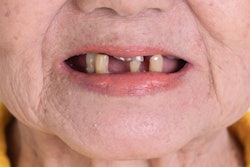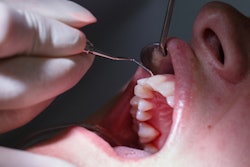
New York University College of Dentistry (NYU Dentistry) was awarded a $3.1 million grant to study the nexus of periodontitis and Alzheimer's disease.
The five-year grant, which began on January 1, was awarded by the National Institutes of Health's National Institute of Aging. Researchers will study if and how gum disease promotes the pathogenesis of Alzheimer's.
Preliminary data show that the metabolic byproduct succinate is significantly increased in the cerebrospinal fluid of mice with periodontitis. Further, researchers have learned that microglial cells, which are immune cells in the central nervous system that play a role in infection and inflammation and are needed for homeostasis within the brain, express the succinate receptor (SUCNR1).
When mice with periodontitis were altered genetically to inactivate SUCNR1, proinflammatory cytokines and microglial activation were reduced significantly.
It is hypothesized that elevated succinate in periodontitis induces neurodegeneration directly by activating SUCNR1 in microglial cells and indirectly through systemic inflammation and creating an imbalance in the oral microbiome.
Researchers plan to conduct further in vivo and animal studies to examine how SUCNR1 activation in microglial cells modulates neuroinflammation. They will then test whether blocking the receptor in animals with gum disease alleviates neuroinflammation, cognitive impairment, and periodontal bone loss, according to NYU Dentistry.
If researchers can determine that targeting SUCNR1 reduces neuroinflammation and cognitive impairment in animal models, it could provide a potential new therapy for Alzheimer's disease.




















